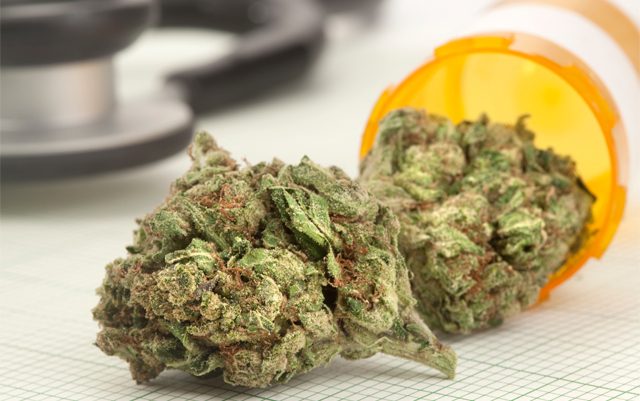The medical marijuana program in the state of New York is one of the most restrictive programs in the entire country. There are 10 conditions that qualify a patient for medical cannabis in New York and while full strength cannabis is available, it is only available in non-smokable forms like oils, edibles, capsules, tinctures and the like. However, the state has been talking about expanding their program for a while now – and it looks like they’re finally taking action to see these changes through.
As it stands now, only doctors are allowed to recommend medical marijuana to a patient – and with only 740 physicians certified by the state, the fact that over 10,000 patients have already been registered is definitely a success – but a new provision that would allow nurse practitioners and physician assistants to recommend cannabis therapy would significantly expand the number of patients able to register. If the amendments filed with the state Department of Health are approved, nurse practitioners could be able to take the certification before the end of the year and physician assistants would be able to starting next year.
“Authorizing nurse practitioners and physician assistants to certify patients will only help to further strengthen the program and improve patient access,” said State Health Commissioner Dr. Howard Zucker.
Along with expanding the types of healthcare professionals who will be able to become certified to recommend cannabis, the state is also looking at adding chronic pain to the list of qualifying conditions. Chronic pain is an interesting one to list, considering it can cover a wide variety of conditions where chronic pain is a symptom – however, it has been proven successful both as a pain reliever and as a way to reduce the number of opiates being used. If New York makes the decision to add this condition, they will be greatly helping residents who have no option aside from dangerous opiates to be able to see an improved quality of life without pharmaceuticals.
These changes are only a few, among many, which have been suggested. The state is also considering delivery services for people who are unable to travel to a dispensary, as well as allowing additional licenses for growers – which would be needed if these expansions are as successful as they are expected to be. Overall, the state started off possibly a bit too cautious, but as time goes by they seem to be realizing that patients are not recreational users seeking a legal means to get high, but rather people who truly see an improvement in their quality of life when cannabis is introduced – and that reflects in their attempts to expand the program to allow more patients access.







Nice article, Julia. Thank you. I also enjoy “writing about the growing cannabis industry and legalization movement.” I’ve been doing exactly that in eastern New York (2.5 hrs. due north of the Big Apple) for 16 years, culminating in an early 2014 report from the front lines of the medical cannabis advocacy effort inside the NYS Capitol building. I humbly aim to point out that New York’s medical law prohibits sales and consumption of “edibles,” such as chocolate bars, gummy bears, lollipops, etc., that one could find in other “legal” states. NY Gov. Andrew Cuomo had personally insisted on that and other ridiculous prohibitions, citing his disapproval of the wide-open medical cannabis market in California. A provision was actually written in the original law empowering nurse practitioners and physician assistants to recommend cannabis but Cuomo nixed it. He still has a real problem with the idea of his constituents buying edibles or properly cut and cured, seedless female flowers. Basically, Cuomo’s about as arrogant in regards to opposing legal cannabis as New Jersey Gov. Chris Christie. My current writing campaign is focused on occasional letters to the governor’s office, imploring him to abandon his senseless fears of these amazingly versatile cannabis plants.